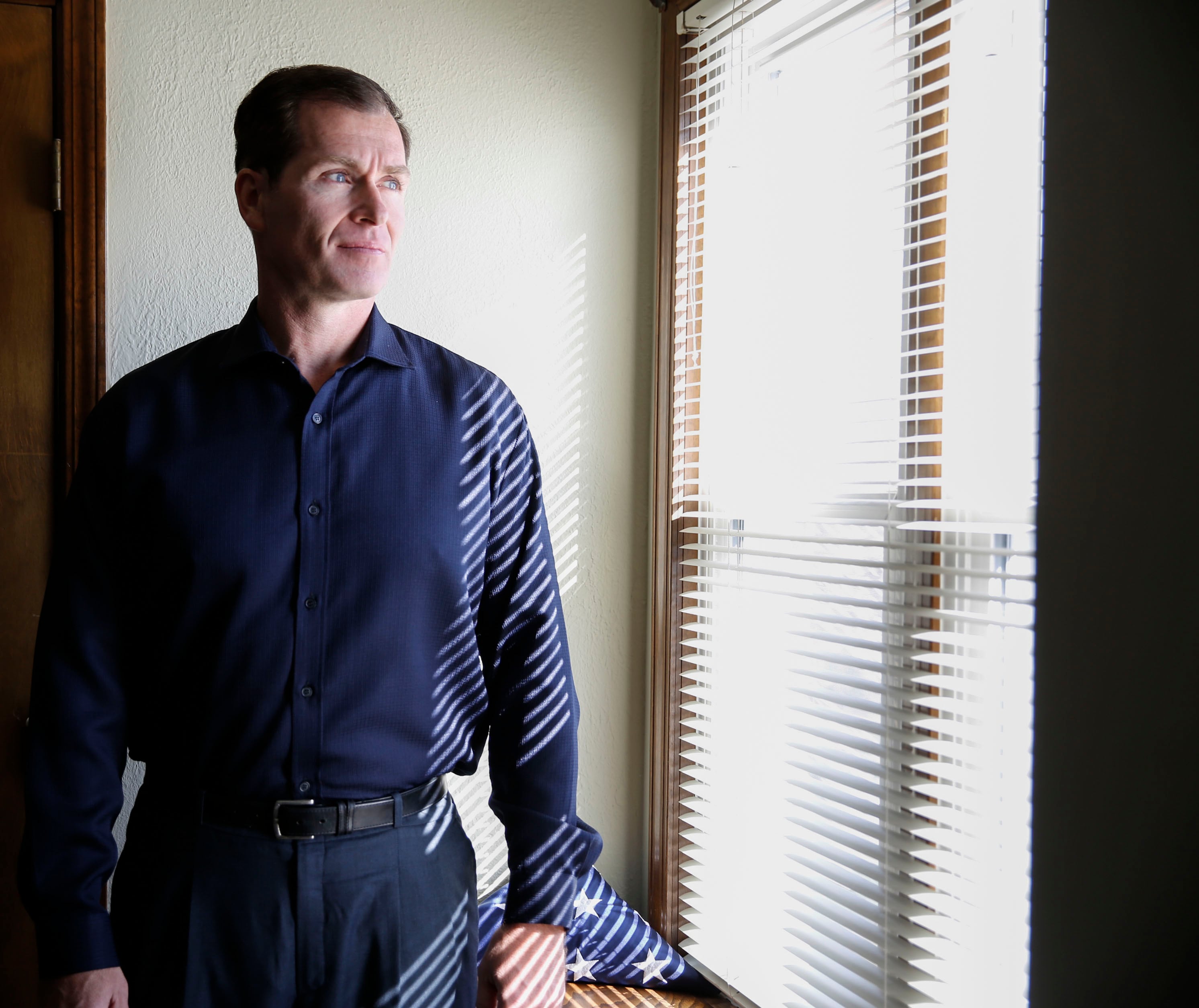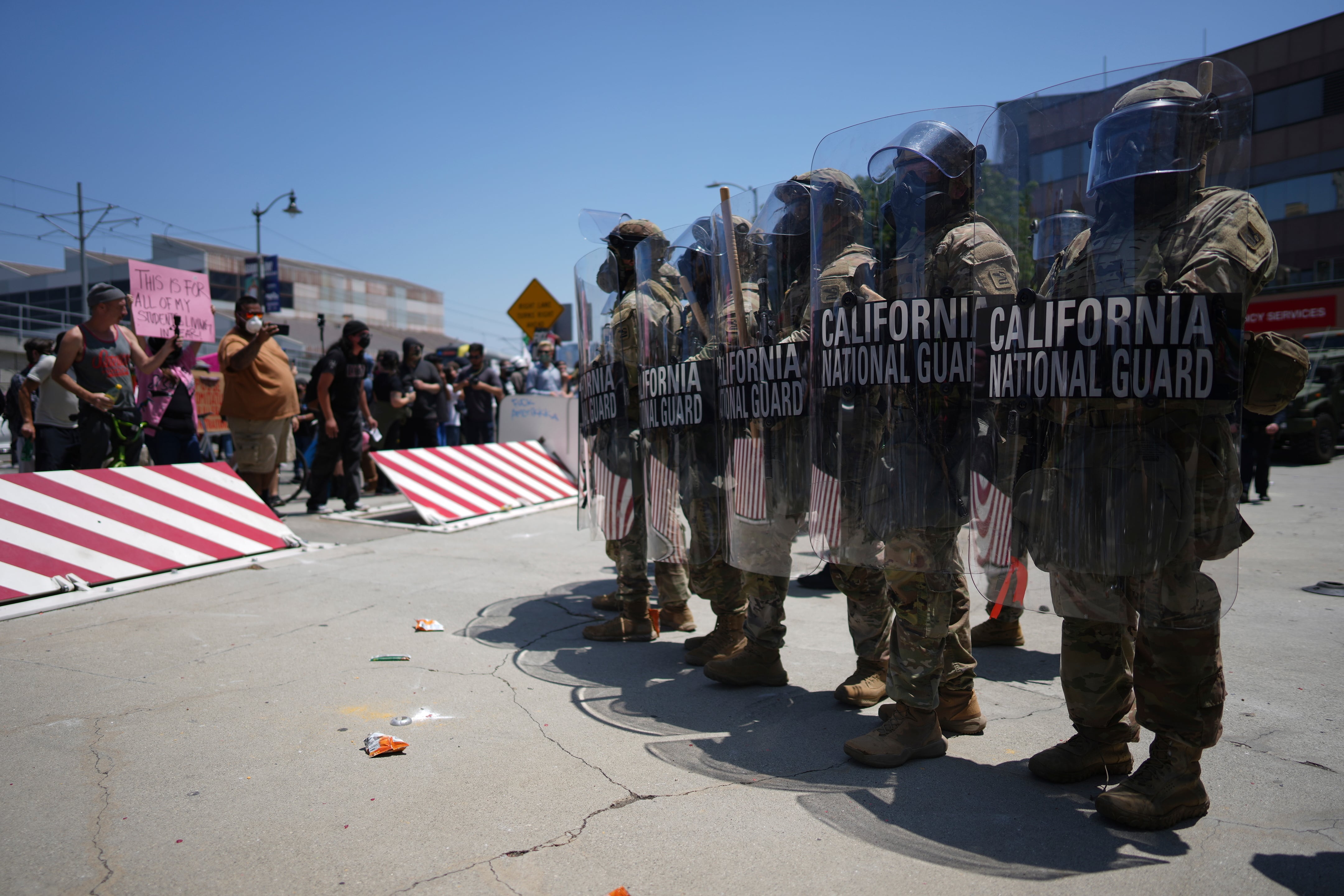In 1975 John Crawley had recently returned to the land of his birth, the United States.
The teenage Crawley had spent the end of his youth in Ireland, where his parents had taken him as they traveled back to their homeland only a few years before.
But Crawley had come back to become a Marine.
Crawley wasn’t joining the Marine Corps in the mid-1970s for college money or a career, though. He had a specific goal – to learn combat skills from one of the best fighting organizations on the planet. Crawley initially looked at joining the Army so he could be a Green Beret, using that military knowledge to return to Ireland and train others in the Irish Republican Army.
RELATED

But, he learned, he’d have to spend at least one enlistment or longer in the Army before he got a crack at the Green Berets.
The Marines would teach him those deadly skills he needed right away.
At the time, Ireland was amid “The Troubles” as they are euphemistically known, a period of 30 years between the late 1960s and 1990s in which the IRA and other factions waged an often-violent campaign in Northern Ireland and elsewhere to free the region from British rule.
Crawley got his wish. He became a Marine and served in an amphibious reconnaissance unit before ending his enlistment in 1979 and returning to Ireland six hours later. There he became the de facto expert in small arms, small unit tactics and other combat techniques for his largely untrained and poorly coordinated fellow fighters.
He’d travel back to America in 1984 to help smuggle guns and support through underground channels such as the notorious Boston mobster James “Whitey” Bulger. Captured in that mission, he spent the next decade behind bars.
Eventually, Crawley would be released, rejoin the IRA immediately and again captured by authorities and sentenced to 35 years in prison for his role in planning an attack on England’s power grid system.
He was one of the IRA members released in 2000 as part of the 1998 peace negotiation process called the “Good Friday Agreement.”
Crawley spoke with Marine Corps Times about his 2022 book, “The Yank: The True Story of a Former U.S. Marine in the Irish Republican Army,” his time in the Corps, his drive to take those skills to another cause and what he learned along the way.
*Editor’s Note: This author Q&A has been edited for length and clarity.
Q: Why did you decide to write this book?
A: Well, coming from my background, the clandestine nature of it, writing a memoir wasn’t the first thing that sprung to mind. I had actually written a novel, spent three years on it. I showed it to some American publishers one of which worked as a screenwriter. They wanted to hear my personal stories. I suppose I thought I had a story to tell, but I also wanted to make sure I didn’t incriminate myself or anybody else. I worked on it, and I ran it by some friends of mine, and they were all very, very, extremely encouraging. So, I ploughed on.
Q: What’s some of what you learned in the Marine Corps that became valuable later in your work with the IRA?
A: I think it helped me understand the enemy better because having been in a professional military force I was able to understand reaction times, what could be seen from a helicopter. There’s still sight picture, sight alignment, and trigger control you learn in marksmanship. One of the things the Marine Corps inculcated in me was a respect and appreciation for training.

Q: What was the state of the IRA’s tactical capabilities when you joined up with them after your time in the Marines?
A: The biggest shock was at the ground level. It was very much an amateur guerilla organization. Though many of the individuals were extremely brave and dedicated. At the service unit level in the IRA, they were keen to learn. At a higher level of leadership there was no real respect for training. I heard members of the IRA leadership say, ‘you can train a monkey to shoot.’ But those fundamentals
Q: There have been some high-profile incidents of Marine veterans seeking out important, and sometimes dangerous, causes post-service, for example, Austin Tice, a former Marine officer turned journalist taken hostage in Syria in 2012; Paul Whelan, a Marine veteran who’s been held in Russia since 2018. What do you think it is about Marines in these instances?
A: I have a sense that a lot of Marines are more idealistic. Let’s face it, a lot of other people join the other services to get technical training, to get a job in civilian life. I think very few people join the Corps to do anything but be a warrior. There’s this misconception that Marines are sort of just thick jarheads. It was a very intelligent organization. The offers were very highly trained, and I met some of the smartest guys I’ve ever met in the Marines. Really well-read guys with a high level of idealism. Maybe there’s an element of that, why maybe people go on to fight for other things they believe in.
Q: Is there an alternate reality where you stayed in the Corps?
A: I honestly believe that if I hadn’t gone back to Ireland that I would have taken the offer they gave me to go to the Naval Academy. I believe I would have stayed in and probably gone to the academy. I mean, it’s not every day you get an offer like that.
Todd South has written about crime, courts, government and the military for multiple publications since 2004 and was named a 2014 Pulitzer finalist for a co-written project on witness intimidation. Todd is a Marine veteran of the Iraq War.










